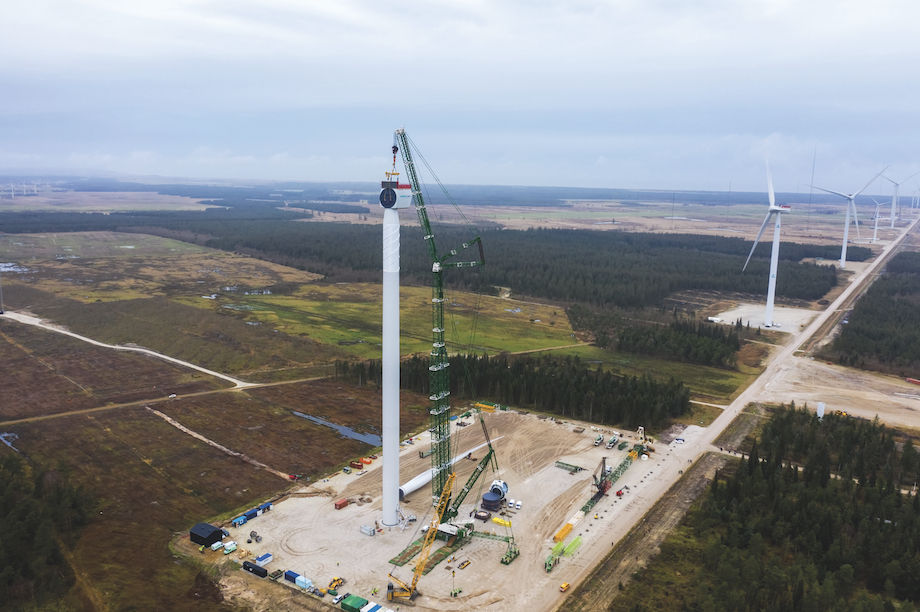SGRE posted a Ōé¼165 million net loss in Q2 of its financial year due to the ongoing impact of the Covid-19 pandemic.
Its revenue also fell by 8% year on year to Ōé¼2.2 billion due to lower sales of turbines, while reported Ebit came in at a loss of Ōé¼118 million, down from a Ōé¼90 million profit a year earlier.
The manufacturer suffered supply chain disruptions due to factory closures, while difficulties in moving project installation teams caused delays to project executions, CEO Markus Tacke explained in a conference call.
It reported that the ongoing pandemic intensified challenges for its onshore business in Northern Europe and India between January and March 2020.
Siemens Gamesa has rerouted supply chains, optimised remote monitoring to guarantee service operations, and extended periods of maintenance for teams working at sea to shield its employees and the companyŌĆÖs operations from the pandemic.
Its Ōé¼165 million net loss in Q2 2020 is down from a Ōé¼49 million profit from 2019, and contributed to a Ōé¼339 million net loss in the first half of SGRE's financial year, which runs from October to September.
SGRE follows rival manufacturer Vestas in falling into a loss in the first three months of 2020, with both companies suffering logistical challenges and supply chain bottlenecks due to the pandemic.
Siemens GamesaŌĆÖs CEO Tacke said opportunities to secure turbine supply contracts ŌĆ£will not disappearŌĆØ and agreements due to be signed in Q2 would likely be finalised in Q3.
But the ongoing pandemic might continue to squeeze its profitability throughout the year, he added.
ŌĆ£I would assume that the direct impact for the rest of the year might be in the order of magnitude we have seen in Q2,ŌĆØ he told reporters.┬ĀŌĆ£There will be some effects in Q3 and Q4.ŌĆØ
However, the manufacturer believes it is well-guarded against the impacts of the virus due to its order book reaching record levels and the company has credit lines worth Ōé¼4 billion ŌĆö "against which it has drawn Ōé¼1.1 billion".
Siemens GamesaŌĆÖs order book rose to Ōé¼28.6 billion by the end of Q2 ŌĆö up 21% from a year earlier, and 1.7% from the end of the previous quarter.
By the end of Q2, it had reduced net debt to Ōé¼295 million ŌĆö down from Ōé¼724 million ŌĆö having now paid for SenvionŌĆÖs service assets.
A lack of short-term predictability owing to the pandemic prompted Siemens Gamesa to withdraw its guidance for the 2020 financial year.
But the company stated that it remains optimistic about its own long-term prospects.┬Ā
It is also buoyant about the long-term prospects of the wind power industry and the clean energy sector, given analystsŌĆÖ projections of continued growth and the opportunity to link Covid-19 recovery efforts with green goals.
Tacke joined calls for post-pandemic recovery stimulus packages to boost decarbonisation targets and for renewable energy to be at the ŌĆ£coreŌĆØ of such aid.
ŌĆ£Siemens Gamesa considers that the renewables industry must play a key role in the economic recovery to move towards a sustainable energy model that generates quality jobs,ŌĆØ he said.┬Ā
ŌĆ£It is in our hands to avoid another crisis: the climate crisis.ŌĆØ

.png)



.png)









